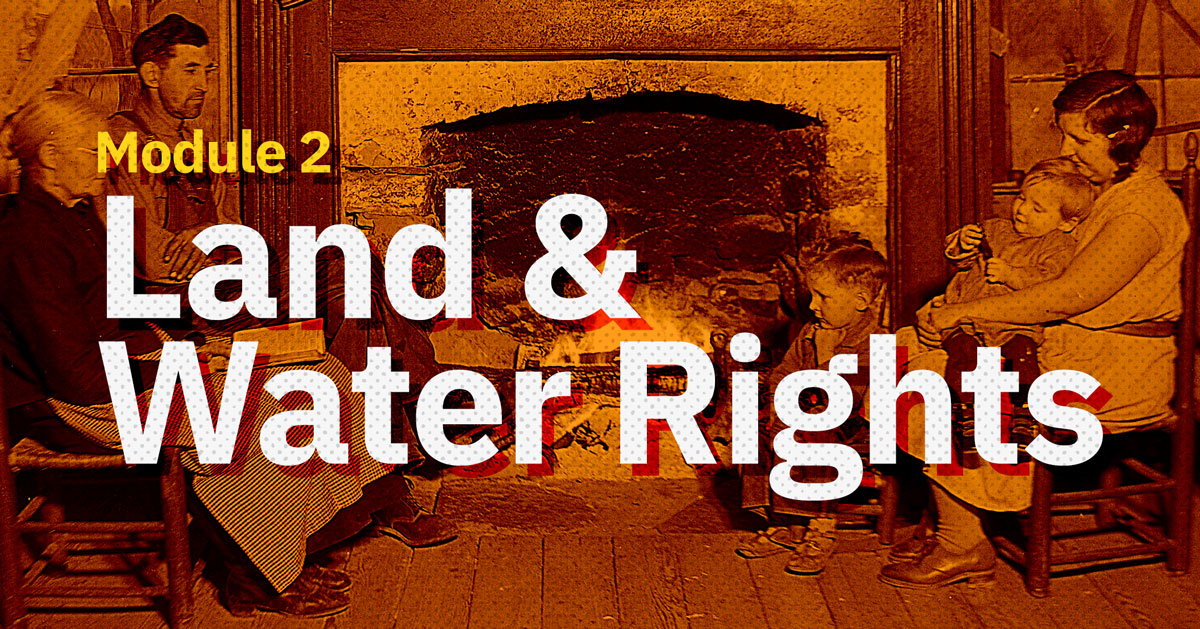
Module 2: Land & Water Rights
Lesson Overview
- Who has the right to own land and water?
- Identify how the U.S. government has exercised annexation and eminent domain to obtain land and water resources
- Analyze and interpret primary-source documents addressing annexation and eminent domain
- Participate in a Paideia Seminar to gain a fuller understanding of how water rights have been protected or denied in the United States
- Students demonstrate their understanding of the federal government’s use of annexation and eminent domain in Indigenous and rural communities.
- Students defend a position using evidence-based
reasoning based on their analysis and interpretation of primary-source documents. - Students will participate in a Paideia Seminar and report their observations to their teacher and to the class.
- Teachers may assess by using the Assessment Rubric.
- Students will participate in self-reflection by completing the Inquiry Reflection Tool.
- Active learning
- Alternate points of view
- Analyzing evidence
- Analyzing primary sources
- Close reading
- Collaboration
- Compassion
- Critical thinking
- Empathy
- Incorporating evidence
- Open-mindedness
- Patience
- Respectful communication
- Social awareness
- Active learning
- Alternate points of view
- Analyzing evidence
- Analyzing primary sources
- Close reading
- Collaboration
- Compassion
- Critical thinking
- Empathy
- Incorporating evidence
- Open-mindedness
- Patience
- Respectful communication
- Social awareness
Center for Civic Education
We the People: The Citizen & the Constitution (Level 2)
- Unit 5, Lesson 27: How does the Constitution protect the right to due process of law?
Educating for American Democracy Roadmap
Theme 3: We the People:
- Evaluate the extent to which marginalized groups have won incorporation into “the people” and advanced the shared values and principles of the U.S.
Theme 7: A People with Contemporary Debates & Possibilities:
- Understand how fundamental American principles—and continuing debates about them—shape current policy debates
College, Career, and Civic Life (C3) Framework
- D2.Civ.8.6-8. Analyze ideas and principles contained in the founding documents of the United States, and explain how they influence the social and political system.
Common Core Standards for Literacy in Social Studies
- CCSS.ELA-Literacy.RI.8.3: Analyze how a text makes connections among and distinctions between individuals, ideas, or events (e.g., through comparisons, analogies, or categories).
- CCSS.ELA-Literacy.RI.8.7: Evaluate the advantages and disadvantages of using different mediums (e.g., print or digital text, video, multimedia) to present a particular topic or idea.






